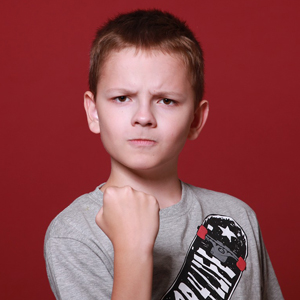Always angry kids
© Caroline Witten-Hannah for Auckland Therapy Blog, 17 July 2018.
Why is my kid so angry?
 Children who are persistently angry, unhappy, defiant, non compliant, complaining, negative, miserable and tantruming can be very hard to live with. Parents can feel drained, upset and very frustrated and it often disrupts the whole family.
Children who are persistently angry, unhappy, defiant, non compliant, complaining, negative, miserable and tantruming can be very hard to live with. Parents can feel drained, upset and very frustrated and it often disrupts the whole family.
Parents inevitably ask WHY is my child like this? Am I doing something wrong? Is there something wrong with me or my child? And so the questions and wonderings go on.
What's behind the anger?
Persistent Anger is usually a messenger that something is not right for the child and so try to look behind the anger to find out what is going wrong in your child’s world. There can be a multitude of reasons why children behave like this. Things like : jealousy, family dynamics, sibling rivalry, teasing, bullying, school problems, learning difficulties, poor self esteem, feeling left out, loneliness, anxiety, sadness and grief, problems with friends and so the list goes on.
In childhood sadness and and anger are very closely linked to one another which means that children can often express their sad feelings with anger. Children are not always able to identify what’s going on for them or if they know they may be unable to talk about it. Some children don’t want to worry parents with their issues and think they should sort stuff out for themselves.
Helping angry kids
- Resist the desire to punish angry children but rather accept and empathise with your children’s angry feelings and then redirect their angry expression appropriately.
- For children who have difficulty controlling their expressions of anger it is helpful to set firm limits. This is necessary for many children who lash out because children don’t have a fully developed cortex in their brains which helps them self regulate their emotions.
- Teach children that anger is not a bad or negative emotion, but something everybody feels sometimes.
- Talk about your own angry feelings and model positive ways to express anger.
Anger management skills
We all need to manage or hold our anger in certain situations and generally this is something kids get better at as they grow older. Help children see that they can choose how to express their angry feelings and show them lots of ways to do this positively:
- getting out their angry energy by doing physical things like : kicking a ball, bouncing on the trampoline, running around, going for a bike ride etc
- expressing their angry thoughts by talking, sharing with others, drawing, writing and deciding how they could solve the problem
- learning problem solving is incredibly important and builds confidence and self esteem as well as helping develop positive attitude to life
- learning breathing to calm themselves down is an important skill to master that will be useful throughout life in all sorts of situations
Getting Help
Parents will often try a range of different parenting strategies to try and help a persistently angry child. If you have done this with no success, then it is probably time to seek some professional help. Intervening early before these negative behaviours become entrenched is recommended especially before you hit the teenage years.
Remember that kids who are persistently angry are unhappy and are probably stuck, not knowing how to help themselves.
Engaging with a child therapist who is skilled in helping families with children’s behaviour problems can usually identify the underlying problem and set your child back on the right track again with many useful skills to use when situations arise next time.
